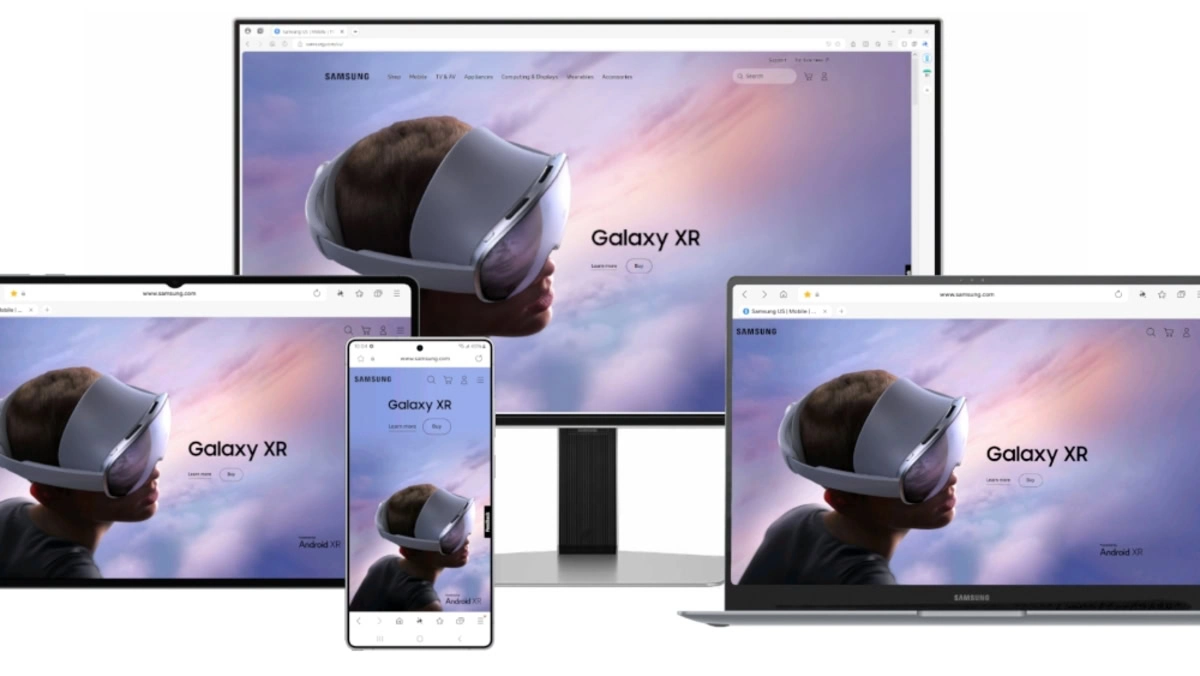Technology
Samsung Internet Launches Beta for Windows, Competes in AI Browsers

Samsung has officially launched a beta version of its Samsung Internet browser for Windows users in the US and Korea. This marks the company’s entry into the competitive landscape of desktop browsers, expanding its established presence in mobile. The new desktop version aims to enhance the integration of Samsung’s Galaxy ecosystem, which connects smartphones, tablets, and computers.
Expanding the Galaxy Ecosystem
With the introduction of Samsung Internet on Windows, Samsung is positioning itself amidst a crowded market dominated by established players like Google Chrome and Mozilla Firefox. The company intends to leverage its existing mobile browser, already popular among users of its One UI operating system, and extend its functionality to desktop users. The beta version is currently available for Windows 10 and 11.
This initiative is part of Samsung’s broader strategy to create a seamless Galaxy ecosystem that enhances user experience across devices. By offering synchronization features for browsing history, bookmarks, and login information via Samsung Pass, the company aims to facilitate a smooth transition for users switching between their phones and PCs.
Integrating AI Features
Recognizing the growing importance of artificial intelligence in modern web browsing, Samsung is prioritizing AI-powered features in its new desktop browser. The company has referred to this development as part of its “vision for ambient AI.” Competitors such as Microsoft Edge and Google Chrome have already begun integrating sophisticated AI tools, making it essential for Samsung to keep pace.
The beta version includes a feature called Browsing Assist, which utilizes Galaxy AI to offer webpage summaries and translation capabilities. This tool aims to help users manage information overload, a significant challenge in today’s digital landscape. As Samsung continues to refine its AI strategy, further enhancements are anticipated in future updates.
Privacy remains a key concern for users, and Samsung has retained its robust privacy measures from the mobile version. The browser features Smart Anti-Tracking to block third-party cookies, along with a Privacy Dashboard that allows users to manage their security settings effectively.
While the beta version is currently limited to users in the US and Korea, Samsung’s entry into the desktop browser market signals its commitment to providing a cohesive, integrated experience for its customers. The company aims to ensure that its AI strategy functions seamlessly across all platforms, setting the stage for the potential future expansion of Samsung Internet.
As the competition in the AI-powered browser segment heats up, Samsung’s move to launch a desktop version of its Internet browser is a significant step toward solidifying its position in the tech ecosystem.
-

 Education3 months ago
Education3 months agoBrandon University’s Failed $5 Million Project Sparks Oversight Review
-

 Science4 months ago
Science4 months agoMicrosoft Confirms U.S. Law Overrules Canadian Data Sovereignty
-

 Lifestyle3 months ago
Lifestyle3 months agoWinnipeg Celebrates Culinary Creativity During Le Burger Week 2025
-

 Health4 months ago
Health4 months agoMontreal’s Groupe Marcelle Leads Canadian Cosmetic Industry Growth
-

 Technology3 months ago
Technology3 months agoDragon Ball: Sparking! Zero Launching on Switch and Switch 2 This November
-

 Science4 months ago
Science4 months agoTech Innovator Amandipp Singh Transforms Hiring for Disabled
-

 Education3 months ago
Education3 months agoRed River College Launches New Programs to Address Industry Needs
-

 Technology4 months ago
Technology4 months agoGoogle Pixel 10 Pro Fold Specs Unveiled Ahead of Launch
-

 Business3 months ago
Business3 months agoRocket Lab Reports Strong Q2 2025 Revenue Growth and Future Plans
-

 Technology2 months ago
Technology2 months agoDiscord Faces Serious Security Breach Affecting Millions
-

 Education3 months ago
Education3 months agoAlberta Teachers’ Strike: Potential Impacts on Students and Families
-

 Science3 months ago
Science3 months agoChina’s Wukong Spacesuit Sets New Standard for AI in Space
-

 Education3 months ago
Education3 months agoNew SĆIȺNEW̱ SṮEȽIṮḴEȽ Elementary Opens in Langford for 2025/2026 Year
-

 Technology4 months ago
Technology4 months agoWorld of Warcraft Players Buzz Over 19-Quest Bee Challenge
-

 Business4 months ago
Business4 months agoNew Estimates Reveal ChatGPT-5 Energy Use Could Soar
-

 Business3 months ago
Business3 months agoDawson City Residents Rally Around Buy Canadian Movement
-

 Business3 months ago
Business3 months agoBNA Brewing to Open New Bowling Alley in Downtown Penticton
-

 Technology2 months ago
Technology2 months agoHuawei MatePad 12X Redefines Tablet Experience for Professionals
-

 Technology4 months ago
Technology4 months agoFuture Entertainment Launches DDoD with Gameplay Trailer Showcase
-

 Technology4 months ago
Technology4 months agoGlobal Launch of Ragnarok M: Classic Set for September 3, 2025
-

 Technology4 months ago
Technology4 months agoInnovative 140W GaN Travel Adapter Combines Power and Convenience
-

 Science4 months ago
Science4 months agoXi Labs Innovates with New AI Operating System Set for 2025 Launch
-

 Top Stories2 months ago
Top Stories2 months agoBlue Jays Shift José Berríos to Bullpen Ahead of Playoffs
-

 Technology4 months ago
Technology4 months agoNew IDR01 Smart Ring Offers Advanced Sports Tracking for $169










